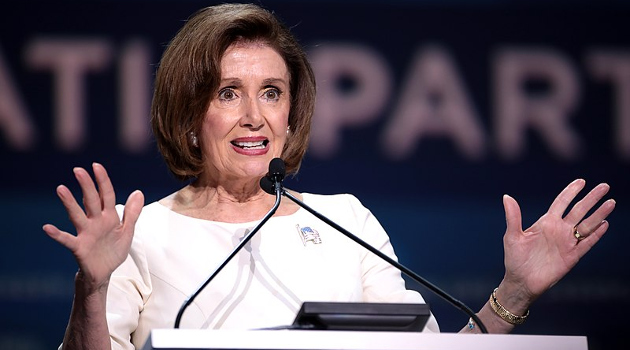The “bad penny” of Keynesian economics (based on the “broken window fallacy“) has returned, as I discussed in an interview last week.
While I’m not a fan of Keynesianism, I tried to give a fair description of the theory.
I pointed out that supporters think government spending can “prime the pump” of the economy. Give people money, and they will spend it, and the merchants who receive that money will spend it, which then leads to further spending. And so on and so on.
In reality, this is the fiscal version of a perpetual motion machine.
I explained in the interview that Keynesian economics has never worked in the real world. It didn’t work for Hoover or FDR. It didn’t work for Japan. It didn’t work for Obama.
If I had more time, I also would have explained the theory’s underlying deficiency – which is that government can’t put money into the economy without first taking money out of the economy (a part of the equation that some Keynesians apparently don’t understand).
Who are these people who don’t understand basic economics?
One of them is the Speaker of the House of Representatives, Nancy Pelosi. Here are excerpts from a story posted by MSN.
House Speaker Nancy Pelosi, D-Calif., argued…that increased U.S. government spending on domestic social programs would help decrease the national debt and bring down inflation at home. …”So when we’re having this discussion, it’s important to dispel some of those who say, well it’s the government spending – no, it isn’t,” she continued. “The government spending is doing the exact reverse, reducing the national debt. It is not inflationary.” …Biden made similar comments during a Democratic retreat in Philadelphia on Friday.
Just in case some of you may be thinking Speaker Pelosi is being misquoted, you can watch videos of her making the statement, either on Twitter or YouTube.
I’ll close by bending over backwards to (sort of) rationalize her statement.
If you listen closely to her full remarks, it’s possible that she may be mixing up arguments about Keynesianism potentially stimulating the economy in the short run and Biden’s budget plan potentially reducing debt in the long run.
She would be wrong about both short-run policy and long-run policy, in my humble opinion, but at least she wouldn’t be crazy wrong.
P.S. It’s not uncommon for politicians to misspeak rather than deliberately lie. For instance, Trump was wrong five years ago when he claimed the U.S. had the world’s highest taxes, but I think he was being sloppy rather than dishonest. And the same may be true for Pelosi .
P.P.S. As I noted in the interview, Pelosi has a track record of making foolish statements based on Keynesian theory.
P.P.P.S. Not to be pedantic, but I don’t think government spending increases are inflationary. The better argument is to say that reckless fiscal policy may encourage the Federal Reserve to enact inflationary monetary policy.
P.P.P.P.S. Since today’s column is about Keynesian economics, click here, here, and here for some amusing cartoons. Here’s some clever mockery of Keynesianism. And here’s the famous video showing the Keynes v. Hayek rap contest, followed by the equally enjoyable sequel, which features a boxing match between Keynes and Hayek. And even though it’s not the right time of year, here’s the satirical commercial for Keynesian Christmas carols.
———
Image credit: Gage Skidmore | CC BY-SA 2.0.


